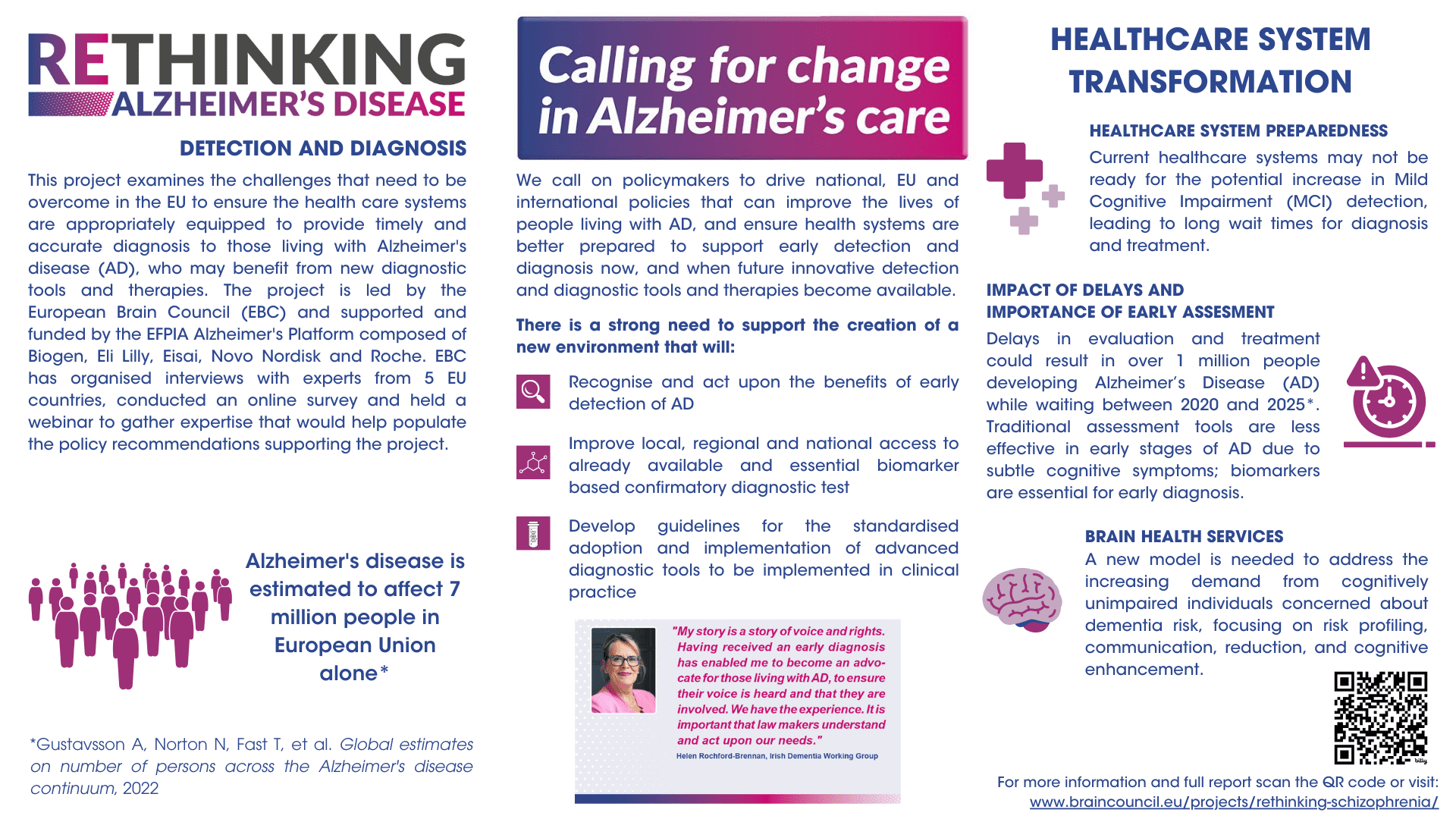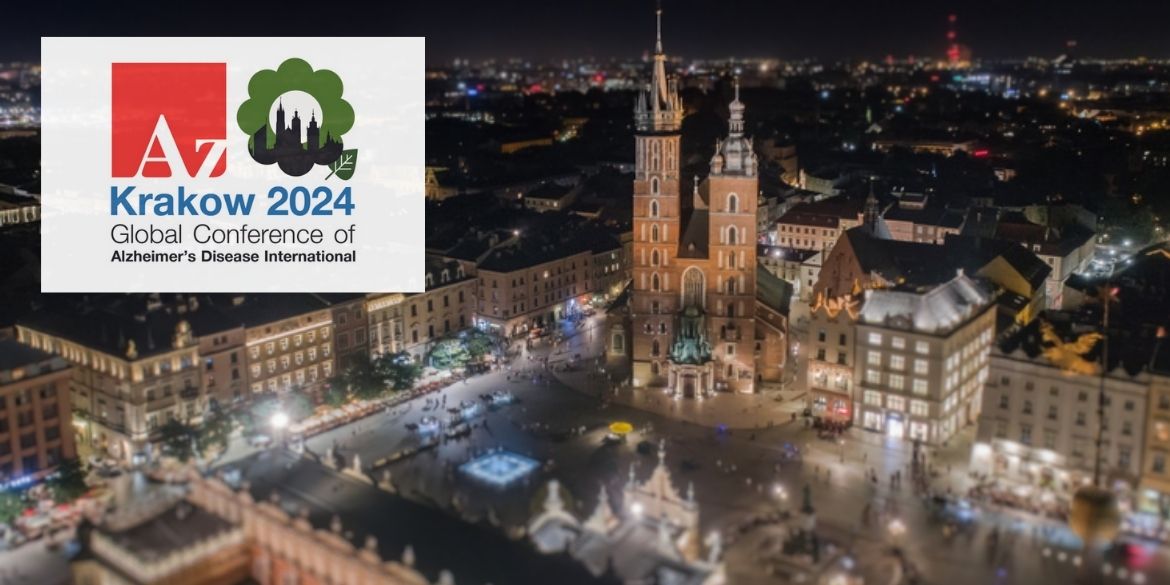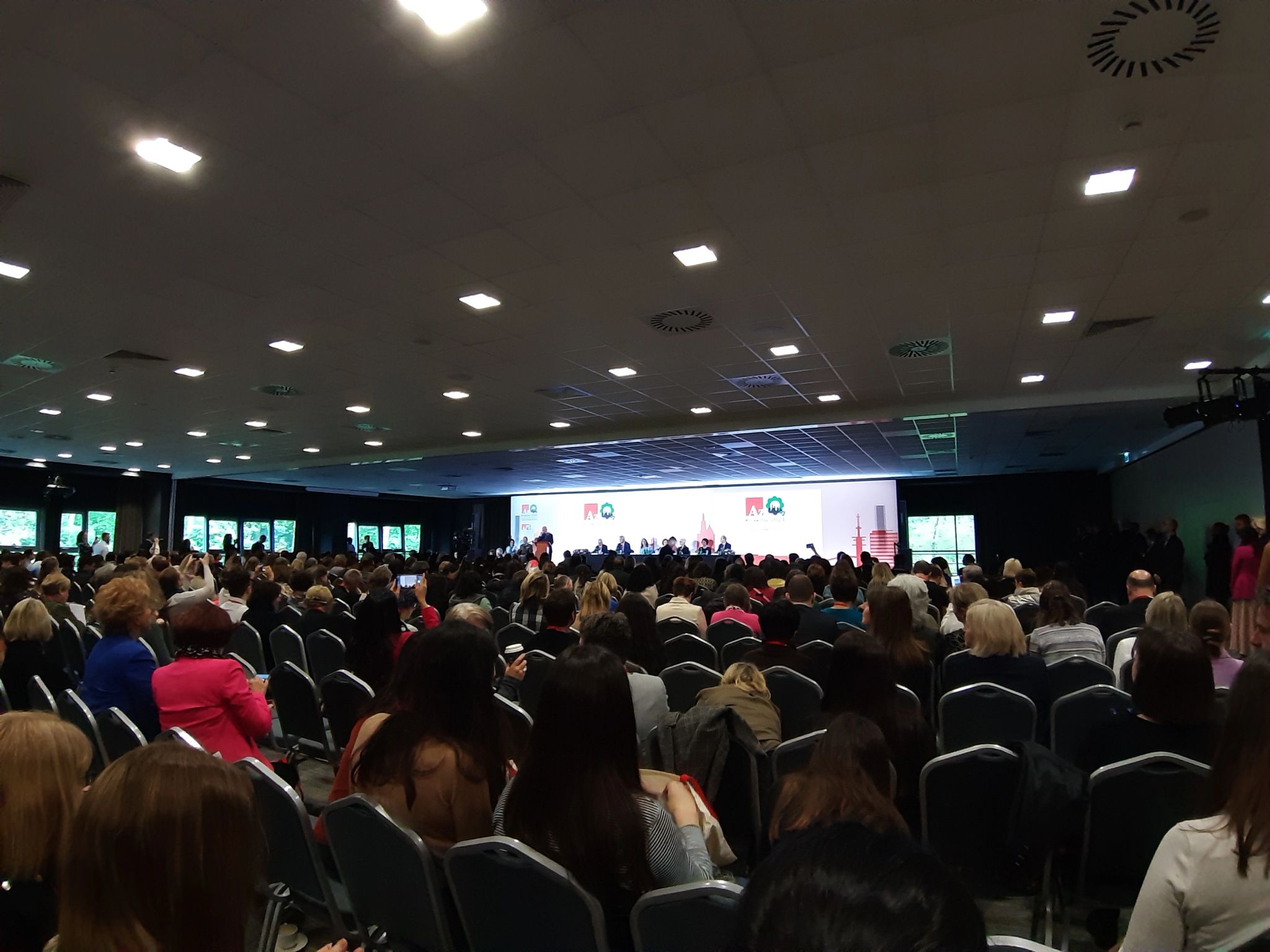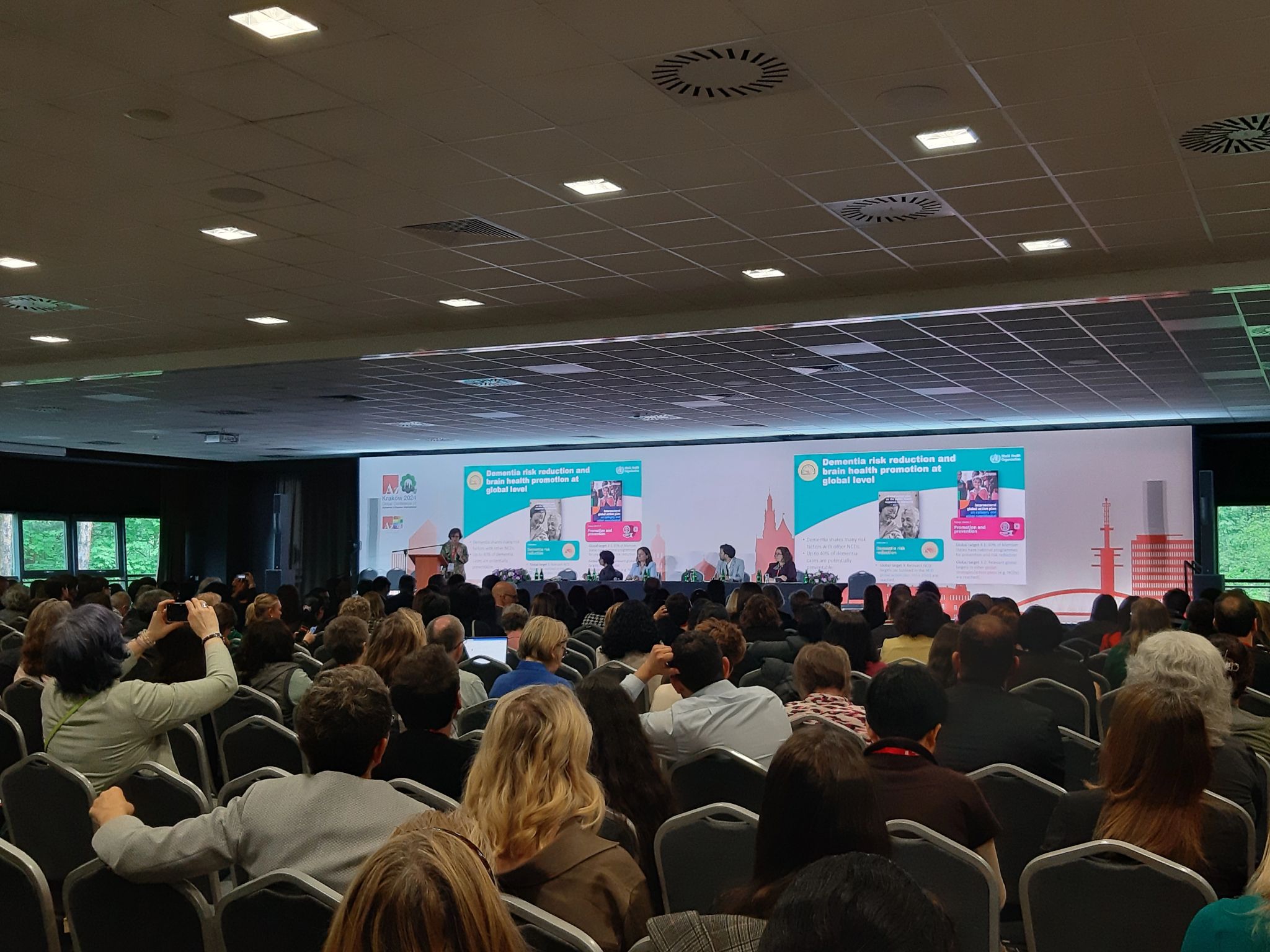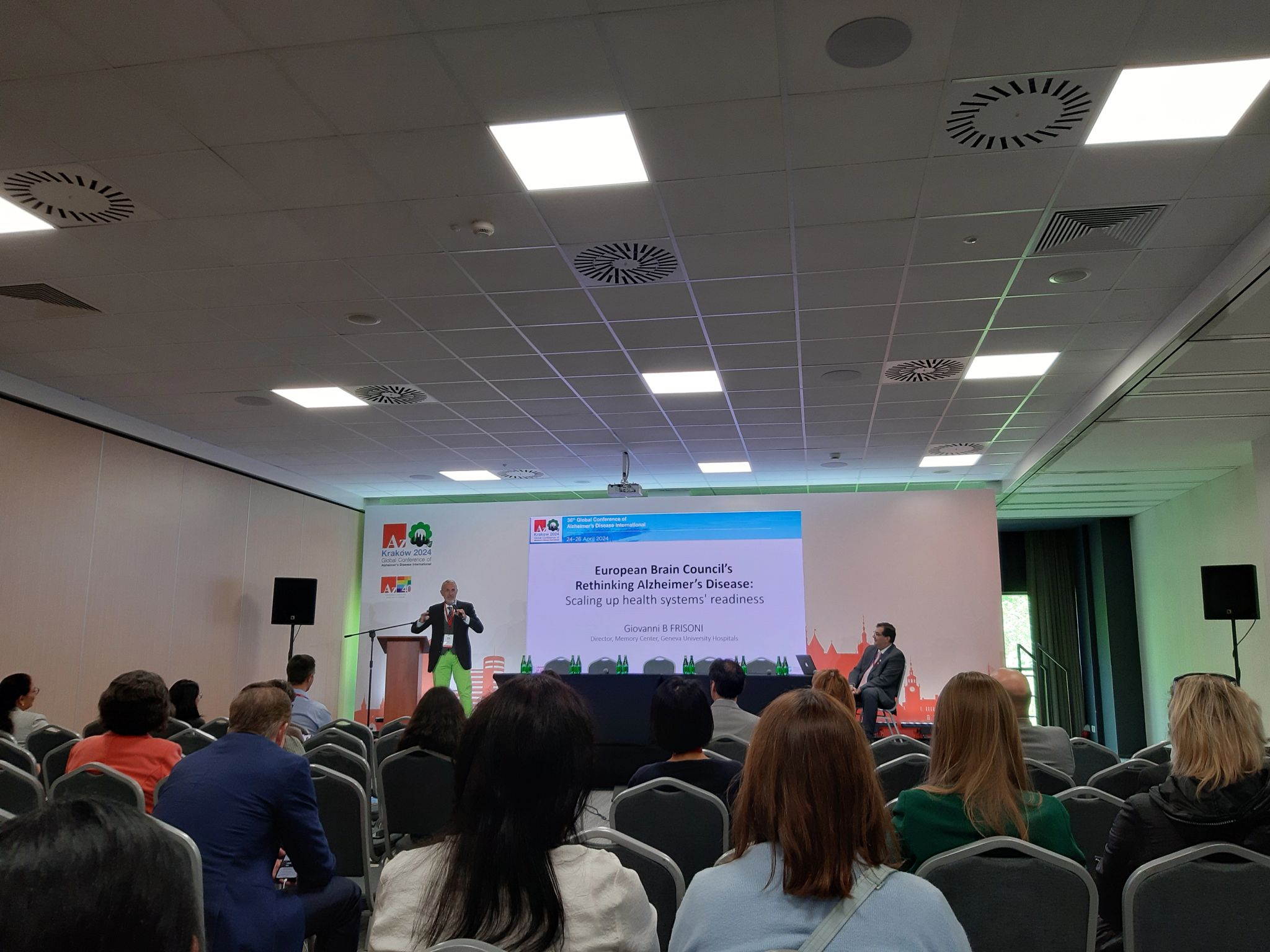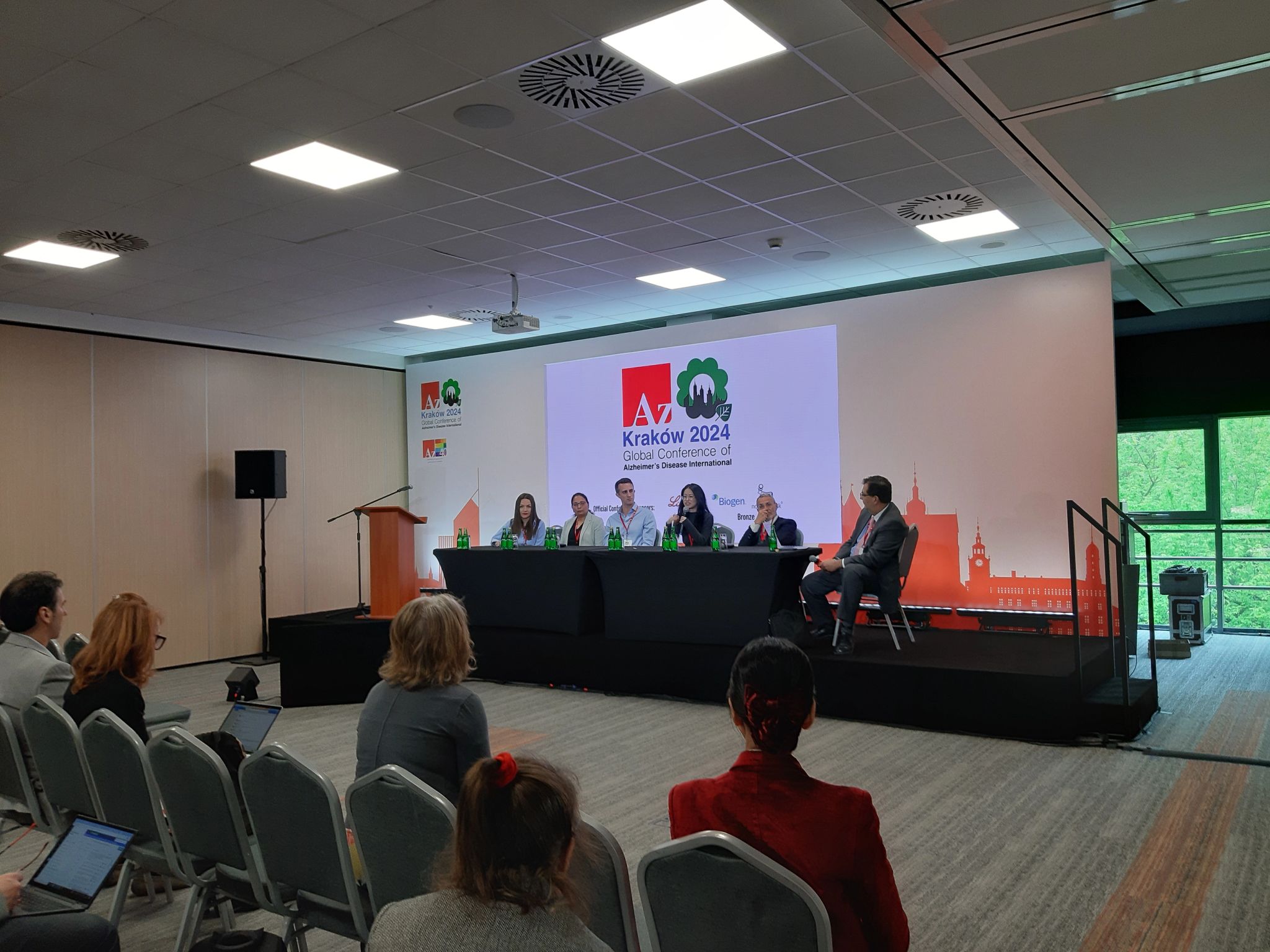The 36th Global Conference of Alzheimer’s Disease International (ADI) took place in Kraków, Poland from 24-26 April 2024, with ADI member Polskie Stowarzyszenie Pomocy Osobom z Chorobą Alzheimera (Polish Alzheimer’s Association).
Held under the overarching theme of “Dementia: Insights. Innovations. Inspirations.”, the conference brought together more than 1000 delegates from over 100 countries to share information on achievements, innovations and best practices in dementia research, care and policy, while continuing to address and challenge the perceptions around dementia.
The conference followed on from ADI 2022 and was offered in hybrid format, combining in-person and virtual elements for an educational and interactive experience for delegates. The programme was structured around the 7 action areas of the World Health Organization (WHO)’s Global Action Plan on dementia, which centre around policy, awareness, prevention and diagnosis, research, care and treatment of dementia.
EBC was pleased to be part of this year’s conference and hold a presentation “Rethinking Alzheimer’s disease: Scaling up health systems’ readiness” and an e-poster presentation “Rethinking Alzheimer’s disease: Cross-roads in the earlier detection and diagnosis of Alzheimer’s”, both highlighting the Rethinking Alzheimer’s Disease White Paper, calling for change in Alzheimer’s care.
During the closing ceremony, the save the date for the 37th Global Conference of Alzheimer’s Disease International was announced, set to take place in France in 2026.
Rethinking Alzheimer’s disease: Scaling up health systems’ readiness
EBC was part of the session “Diagnosis, diagnostic tools and cognitive assessments” which took place on 26 April 2024. Prof. Giovanni Frisoni will presented “Rethinking Alzheimer’s disease: Scaling up health systems’ readiness” as one of the experts involved in the Rethinking Alzheimer’s disease project, coordinated by EBC in collaboration with the European Federation of Pharmaceutical Industries and Associations (EFPIA).
Alzheimer’s disease (AD), the most common form of dementia, is a progressive and debilitating neurodegenerative condition which robs people of their memory, their independence, their relationships and, ultimately, their lives. It affects close to 7 million people in the European Union (EU) alone.
The detection and diagnosis of AD relies on a system that remains focused on the late stage of the disease, despite a better understanding of the disease progression. Clinical practice and healthcare systems’ readiness to detect, diagnose and treat the disease effectively are still lagging. The use of biomarkers (cerebrospinal fluid tests (CSF) and positron emission tomography scans (PET)), which are central to a diagnostic assessment for people with AD symptoms, as well as relevant diagnostic facilities are under-utilised. PET imaging is expensive and of limited availability, and CSF sampling may be considered invasive.
The European Brain Council’s ‘Rethinking Alzheimer’s disease: Detection and diagnosis’ White Paper has looked at the barriers to early diagnosis and how the healthcare systems infrastructure for detection and diagnosis of AD need to be transformed in order for people with AD to benefit from innovative solutions once they become approved for use. The Rethinking Schizophrenia project falls under the Rethinking the management of brain disorders series, research-driven projects offering policy recommendations to make tangible changes with the aim to improve the lives of people living with brain disorders, neurological and mental alike, across Europe. More details about the outcomes of the Rethinking Alzheimer’s disease project can be found in this article.
Rethinking Alzheimer’s disease: Cross-roads in the earlier detection and diagnosis of Alzheimer’s
EBC also held an e-poster presentation “Rethinking Alzheimer’s disease: Cross-roads in the earlier detection and diagnosis of Alzheimer’s” featuring the Rethinking Alzheimer’s Disease White Paper. The Paper calls on policymakers to drive national, EU and international policies that can improve the
lives of people living with AD, and ensure health systems are better prepared to support early detection and diagnosis now, and when future innovative detection and diagnostic tools and therapies become available.
The poster was presented by Prof. Charlotte Teunissen, Professor in Neurochemistry, Chair of the Neurochemistry lab (Amsterdam UMC) and one of the experts involved in the Rethinking Alzheimer’s Disease project.
